In the pursuit of keeping our furry friends healthy and happy, we often turn to various supplements and nutrients. One such nutrient is Vitamin C, a vital component for overall well-being in dogs, just as it is in humans. But how much do we really know about its benefits, dosage, and potential risks for our canine companions? Let’s delve into the world of Vitamin C for dogs to uncover all you need to know.
Contents Overview
Understanding Vitamin C
Vitamin C, also known as ascorbic acid, is a water-soluble vitamin found in many fruits and vegetables. It plays a crucial role in maintaining healthy tissues, aiding in wound healing, and supporting the immune system. While dogs can produce Vitamin C internally, there are instances where supplementation may be beneficial.
Functions of Vitamin C
Vitamin C, also known as ascorbic acid, is a water-soluble vitamin that serves numerous essential functions in the body, both for humans and dogs. Here’s a comprehensive overview of the functions of Vitamin C:
- Antioxidant Properties:
- Free Radical Scavenging: Vitamin C acts as a potent antioxidant, neutralizing harmful free radicals generated through normal metabolic processes and environmental factors such as pollution, radiation, and toxins.
- Protects Cells and Tissues: By preventing oxidative damage to cells, lipids, proteins, and DNA, Vitamin C helps protect tissues and organs from premature aging, inflammation, and degenerative diseases.
- Regenerates Other Antioxidants: Vitamin C also plays a role in regenerating other antioxidants such as Vitamin E, further enhancing the body’s antioxidant defense system.
- Collagen Synthesis:
- Structural Protein Formation: Vitamin C is essential for the synthesis of collagen, a structural protein that provides strength, elasticity, and support to connective tissues such as skin, bones, cartilage, tendons, and blood vessels.
- Wound Healing: Collagen is crucial for wound healing, as it forms the framework for new tissue growth and helps repair damaged skin and blood vessels.
- Skin Health: Adequate Vitamin C levels are necessary for maintaining healthy skin, promoting skin elasticity, reducing wrinkles, and protecting against UV-induced damage.
- Immune System Support:
- Enhanced Immune Response: Vitamin C plays a vital role in supporting the function of various immune cells, including white blood cells such as lymphocytes, neutrophils, and phagocytes.
- Antimicrobial Activity: Vitamin C enhances the body’s ability to fight off infections by promoting the production of antimicrobial substances and enhancing the activity of immune cells against pathogens such as bacteria, viruses, and fungi.
- Reduces Inflammation: Vitamin C helps modulate inflammation by regulating the production of inflammatory mediators, thereby promoting a balanced immune response and reducing the risk of chronic inflammation-related diseases.
- Iron Absorption:
- Facilitates Iron Uptake: Vitamin C enhances the absorption of non-heme iron (the type of iron found in plant-based foods) in the intestine by reducing ferric iron to ferrous iron, which is more readily absorbed.
- Prevents Iron Deficiency Anemia: Adequate Vitamin C intake can help prevent iron deficiency anemia, a common nutritional disorder characterized by low levels of hemoglobin and red blood cells, especially in individuals with poor dietary iron intake or absorption.
- Neurotransmitter Synthesis:
- Neurotransmitter Production: Vitamin C is involved in the synthesis of neurotransmitters such as dopamine, norepinephrine, and serotonin, which play crucial roles in mood regulation, cognition, and behavior.
- Protects Brain Health: By supporting neurotransmitter function and reducing oxidative stress in the brain, Vitamin C may help protect against neurodegenerative diseases such as Alzheimer’s and Parkinson’s disease.
Sources of Vitamin C for Dogs:
- Natural Sources: Dogs can obtain Vitamin C from various natural sources, including fruits and vegetables such as oranges, kiwi, strawberries, broccoli, Brussels sprouts, and bell peppers.
- Commercial Dog Foods: Many commercial dog foods are fortified with Vitamin C to ensure adequate intake.
- Supplements: Vitamin C supplements for dogs are available in various forms, including tablets, chewable treats, and powdered formulations.
Food Sources of Vitamin C for Dogs
When it comes to providing Vitamin C to your furry friend, incorporating natural food sources into their diet is always a preferred option. Not only do these foods offer essential nutrients, but they also come with additional benefits such as fiber and antioxidants. Here’s an in-depth look at some of the best food sources of Vitamin C for dogs:
- Bell Peppers:
- Rich in Vitamin C: Bell peppers, especially the red and yellow varieties, are packed with Vitamin C, providing a significant portion of the daily requirement in just a small serving.
- Low in Calories: Bell peppers are low in calories and fat, making them an excellent option for dogs watching their weight.
- Easy to Digest: They are easily digestible for most dogs and can be served raw or cooked. Remove the seeds and stems before feeding.
- Other Nutrients: Bell peppers also contain other essential vitamins and minerals, including Vitamin A, Vitamin E, and fiber.
- Broccoli:
- Nutrient-Dense: Broccoli is a nutritional powerhouse, rich in Vitamin C, as well as Vitamin K, folate, and fiber.
- Anti-Cancer Properties: It contains sulforaphane, a compound with anti-cancer properties that may help reduce the risk of certain types of cancer in dogs.
- Feed in Moderation: While broccoli is a healthy addition to your dog’s diet, it should be fed in moderation, as excessive consumption can lead to digestive upset.
- Steaming or Blending: Steaming or blending broccoli can make it easier for dogs to digest and absorb nutrients.
- Brussels Sprouts:
- High in Vitamin C: Brussels sprouts are another excellent source of Vitamin C for dogs, offering a healthy dose of this essential nutrient.
- Rich in Fiber: They are also high in fiber, which supports digestive health and helps regulate bowel movements.
- Antioxidant Properties: Brussels sprouts contain antioxidants that can help protect cells from damage caused by free radicals.
- Serve Cooked: While dogs can eat Brussels sprouts raw, cooking them can enhance digestibility and improve palatability.
- Oranges (in Moderation):
- Citrus Flavor: Oranges are known for their citrusy flavor, which some dogs may enjoy as a occasional treat.
- Vitamin C Content: Oranges are a good source of Vitamin C, but they should be fed in moderation due to their high sugar content.
- Remove Seeds and Peel: When feeding oranges to your dog, be sure to remove any seeds and peel, as these can be difficult to digest and may pose a choking hazard.
- Watch for Allergies: Some dogs may be allergic to citrus fruits, so it’s essential to monitor for any adverse reactions after feeding.
- Other Fruits and Vegetables:
- Kiwi: Rich in Vitamin C and fiber, kiwi can be a refreshing and nutritious snack for dogs.
- Strawberries: These sweet berries are loaded with Vitamin C and antioxidants, making them a healthy treat for dogs in moderation.
- Cauliflower: Another cruciferous vegetable like broccoli, cauliflower is a good source of Vitamin C and can be served cooked or raw.
When to Consider Vitamin C Supplementation
Here’s a comprehensive exploration of when to consider Vitamin C supplementation for dogs:
- During Times of Stress:
- Illness or Infection: Dogs battling illness or infection may have increased requirements for Vitamin C to support their immune system and aid in recovery.
- Surgery or Injury: Dogs undergoing surgery or recovering from injuries may benefit from Vitamin C supplementation to promote wound healing and tissue repair.
- Emotional Stress: Events such as moving to a new home, changes in routine, or the addition of a new family member can cause emotional stress in dogs, leading to increased production of stress hormones. Vitamin C supplementation may help support their adaptive response to stress.
- Aging Dogs:
- Decreased Synthesis: As dogs age, their ability to synthesize Vitamin C may decline, leading to lower levels of this essential nutrient in their bodies.
- Supporting Joint Health: Senior dogs are more prone to joint issues such as arthritis, and Vitamin C supplementation can help support joint health by promoting collagen synthesis and reducing oxidative stress.
- Boosting Immunity: Aging dogs may have weakened immune systems, making them more susceptible to infections and diseases. Vitamin C supplementation can bolster their immune response and enhance their overall health.
- Pregnancy and Lactation:
- Increased Nutritional Demands: Pregnant and lactating dogs have higher nutritional requirements to support the growth and development of puppies.
- Immune Support: Vitamin C supplementation during pregnancy and lactation can help support the mother’s immune system, ensuring her ability to care for her offspring effectively.
- Healthy Development: Adequate Vitamin C levels in the mother can also contribute to the healthy development of puppies, both in utero and during the nursing period.
- High-Stress Environments:
- Working Dogs: Dogs involved in activities such as search and rescue, agility, or competitive sports may experience higher levels of physical and emotional stress.
- Traveling or Boarding: Dogs that frequently travel or are placed in boarding facilities may experience stress due to changes in environment and routine.
- Environmental Stressors: Dogs living in urban environments or exposed to pollution, noise, or other environmental stressors may benefit from Vitamin C supplementation to support their overall resilience.
- Dietary Deficiencies:
- Poor Diet: Dogs fed a diet lacking in Vitamin C-rich foods may not obtain adequate levels of this essential nutrient from their food alone.
- Homemade Diets: Owners feeding homemade diets may need to pay special attention to ensure their dog’s nutritional needs, including Vitamin C, are met.
- Selective Eating: Dogs that are picky eaters or have specific dietary restrictions may benefit from Vitamin C supplementation to fill nutritional gaps in their diet.
Dosage Recommendations
Determining the appropriate dosage of Vitamin C for your dog can be tricky, as it depends on various factors such as weight, age, and health status. It’s crucial to consult with your veterinarian before starting any supplementation regimen. However, here are some general guidelines:
- Small Dogs (under 25 lbs): 100-250 mg per day
- Medium Dogs (25-50 lbs): 250-500 mg per day
- Large Dogs (50-100 lbs): 500-1000 mg per day
- Giant Breeds (over 100 lbs): 1000-2000 mg per day
Bottom Line
Vitamin C plays a crucial role in maintaining the health and vitality of our canine companions. While dogs can produce this essential nutrient internally, supplementation may be necessary in certain situations to support their overall well-being, particularly during times of stress, illness, or old age. However, it’s essential to consult with a veterinarian to determine the appropriate dosage and ensure the safety of supplementation for your dog. By understanding the benefits, risks, and proper dosing of Vitamin C, you can help your furry friend live a healthier and happier life.


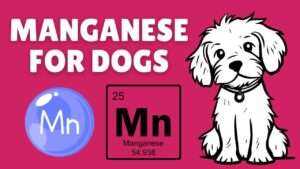
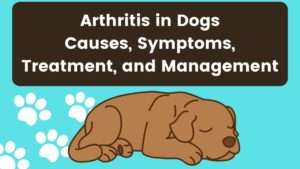











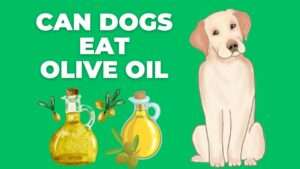





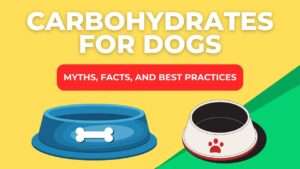
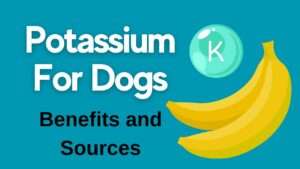




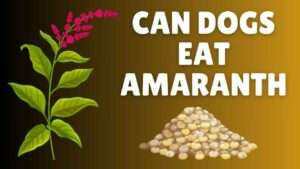
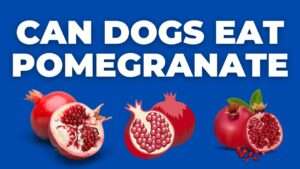







+ There are no comments
Add yours